PAPERS [96]
POSTERS [30]
SOFTWARE DEMOS [10]
Papers
- Hilary Nesi, Michael Rundell, Katalin Sule, Sharon Creese and Barbara McGillivray. A Massive Open Online Course on dictionary use
- Anna Anastassiadis-Symeonidis, Fliatouras Asimakis and Nikolaou Georgia. The Proposed Dictionary of the Learned Elements of Modern Greek (DLEMOG)
- Tim van Niekerk, Johannes Schäfer, Heike Stadler and Ulrich Heid. Semi-automating the Reading Programme for a Historical Dictionary Project
- Jaka Čibej and Špela Arhar Holdt. Researching Dictionary Needs of Language Users Through Social Media: A Semi-Automatic Approach
- Špela Arhar Holdt, Jaka Čibej, Kaja Dobrovoljc, Polona Gantar, Vojko Gorjanc, Bojan Klemenc, Iztok Kosem, Simon Krek, Cyprian Laskowski and Marko Robnik Šikonja. Thesaurus of Modern Slovene: A Responsive Dictionary by the Community for the Community
- Michal Boleslav Měchura. Shareable entry fragments in Lexonomy as a solution to the problem of multi-word item placement
- Anna Vacalopoulou, Eleni Efthimiou and Kiki Vasilaki. Multimodal Corpus Lexicography: Compiling a Corpus-based Bilingual Modern Greek – Greek Sign Language Dictionary
- Gabriele Langer, Anke Mueller, Sabrina Waehl and Julian Bleicken. Authentic examples in a corpus-based Sign Language dictionary – why and how
- Roser Saurí and Richard Shapiro. A Universal Classification of Lexical Categories and Grammatical Distinctions for Lexicographic and Processing Purposes
- Andrej Perdih and Nina Ledinek. Multi-word Lexical Units in General Dictionaries of Slavic Languages
- Arleta Adamska-Sałaciak. Lexicography and theory
- Luca Ciucci. Lexicography in the eighteenth-century Gran Chaco: the Old Zamuco dictionary by Ignace Chomé
- Alina Villalva. Heritage dictionaries and historical corpora: essential and negligible information
- Alenka Vrbinc, Donna M.T.Cr. Farina and Marjeta Vrbinc. Slovenian Lexicographers at Work
- Lut Colman and Carole Tiberius. A good match: a Dutch collocation, idiom and pattern dictionary combined
- Petra Storjohann and Ulrich Schnörch. Commonly-Confused Words in Contrastive and Dynamic Entries
- David Lindemann. LexBib: A corpus and bibliography of metalexicographical publications
- Monika Biesaga and Ewa Kozioł-Chrzanowska. Innovative Usage of Graphical Illustration in Lexicography. Writing Definitions, Visualizing Synonymy and Regular Polysemy
- Sabine Tittel. Historical Dictionary and Historical Corpus: Merging two Ongoing Projects of Old French by Integrating the Editing Systems
- Natassia Schutz. Verifying the general academic status of academic verbs: an analysis of co-occurrence and recurrence in business, linguistics and medical research articles
- Piotr Zmigrodzki. Polish Academy of Sciences Great Dictionary of Polish – report on the work
- Lucie Chlumská, Václav Cvrček, Dominika Kováříková, Jiří Milička and Michal Škrabal. Lexicographer’s Lacunas or How to Deal with Missing Dictionary Forms on the Example of Czech
- Anna Dziemianko. Insights into the language of signposts
- Hae-Yun Jung and Minju Lee. The Treatment of Politeness Elements in French-Korean Bilingual Dictionaries
- Špela Arhar Holdt, Jaka Čibej and Iztok Kosem. The Attitude of Language Users Towards User Involvement in Dictionary Compilation
- Elena Krotova. Computer-aided Analysis of Idioms’ Modifications
- Milos Jakubicek, Michal Měchura, Vojtech Kovar and Pavel Rychly. Practical Post-Editing Lexicography with Lexonomy and Sketch Engine
- Aleksander Wiatr and Christina Mutter. The virtual research environment of VerbaAlpina and its lexicographic function
- Gilles-Maurice de Schryver. Towards a new type of dictionary for Swahili
- Matthias Heinz and Lucilla Pizzoli. Osservatorio degli italianismi nel mondo (OIM) – a digital resource for surveying Italian loanwords in the world’s languages
- Sharon Creese. Neologisms in Online British-English versus American-English Dictionaries
- Juan Rojas-García and Pamela Faber. Semi automatic extraction of prototypical processes affecting beaches from a specialized corpus
- Patrick Hanks. Phraseology, Meaning, and the Future of Lexicography
- Robert Lew, Ana Frankenberg-Garcia, Geraint Rees and Jonathan Roberts. Collocaid: A real-time tool to help academic writers with English collocations
- Zoe Gavriilidou. Russian Borrowings in Greek and their presence in two Greek Dictionaries
- Hana Mžourková. Usage Notes – Cinderella in the Dictionary-Making Process
- Stefan J. Schierholz. Dictionaries of Linguistics and Communication Science / Wörterbücher zur Sprach- und Kommunikationswissenschaft (WSK)
- Melania Cabezas García and Juan Carlos Gil Berrozpe. Semantic-based retrieval of complex nominals in terminographic resources
- Daiga Deksne and Andrejs Veisbergs. A workflow for supplementing a Latvian-English dictionary with data from parallel corpora and reversed English-Latvian dictionary
- Jana Nová. Terms Embraced by the General Public: How to Cope with Determinologization in the Dictionary?
- Mariusz Kamiński. Formulaic Patterns in Definitions
- Alfiia Galieva. Synonymy in Modern Tatar reflected by the Tatar-Russian Socio-Political Thesaurus
- Annette Klosa and Harald Lüngen. New Words: Detection and Description
- Jette Hedegaard Kristoffersen and Thomas Troelsgård. Building a sign language corpus – Problems and challenges. The Danish Sign Language Corpus and Dictionary
- Patrick Leroyer and Henrik K. Simonsen. Specialised lexicography between communication and knowledge
- Carolin Müller-Spitzer, Sascha Wolfer, Idalete Dias, Maria José Domínguez Vázquez and Martina Nied. Search strategies and user behavior in online language resources. An observation study with learners of German
- Sturla Berg-Olsen, Peder Gammeltoft, Knut E. Karlsen and Terje Svardal. Revision of the Norwegian dictionaries Bokmålsordboka (BOB) and Nynorskordboka (NOB)
- Ana-Maria Barbu. Dictionary of Verbal Contexts for Romanian Language
- Pius ten Hacken. On the Interpretation of Etymologies in Dictionaries
- Laura Giacomini. Frame-based lexicography: presenting multiword terms in a technical e-dictionary
- Elizaveta Puritskaya. Russian Academic Dictionaries of the 20th and Early 21st Centuries: the Possibility of an Integral Description in a Dictionary Database
- Maria Mitsiaki and Ioannis Lefkos. ELeFyS: A Greek Illustrated Science Dictionary for School
- Jason Siegel. Lexicography in the French Caribbean: An assessment of future opportunities
- Thomai Dalpanagioti. Corpus-based Cognitive Lexicography: Insights into the Meaning and Use of the Verb ‘stagger’
- Nicolai Hartvig Sørensen and Sanni Nimb. Word2Dict – Lemma Selection and Dictionary Editing Assisted by Word Embeddings
- Sasa Marjanovic, Dejan Stosic and Aleksandra Miletic. A French-Serbian Dictionary Entry Sample Based on the ParCoLab Parallel Corpus
- Renáta Panocová and Pius ten Hacken. Process nouns in dictionaries: A comparison of Slovak and Dutch
- Fahad Khan and Federico Boschetti. Towards a Representation of Citations in Linked Data Lexical Resources
- Esther Baiwir and Pascale Renders. How to connect linguistic atlases with digital lexicography ? First step for a dynamic network in the Galloromance field
- Svitlana Pereplotchykova. Definitions of words in everyday communication: associative meaning from the pragmatic point of view
- Vladimír Benko. In Praise of Simplicity: Lexicographic Lightweight Markup Language
- Cartier Emmanuel. An Automatic System for Lexical Units Life-Cycle Tracking
- Pamela Faber and Miriam Buendía-Castro. Electronic Dictionary Design: A Delicate Balance
- Katrin Menzel. Using diachronic corpora of scientific journal articles for complementing English corpus-based dictionaries and lexicographical resources for specialized languages
- Cristiano Furiassi. Towards a Glossary of Rum Making and Rum Tasting
- Antonella Amatuzzi. Nathanaël Duez lexicographe: l’art de (re)travailler les sources
- Zoe Gavriilidou. An explicit and integrated intervention programme for training paper dictionary use in Greek primary school pupils
- Barbora Štěpánková, Magdalena Kroupová and Veronika Vodrážková. The Sounds of a Dictionary. Description of Sounds in the Academic Dictionary of Contemporary Czech
- Úna Bhreathnach, Gearóid Ó Cleircín, Brian Ó Raghallaigh, Hugh Rowland and Christine Herwig. The GA IATE Project: a discursive and interactive partnership for terminology support
- Ivana Filipović Petrović. Shades of word meanings in a Croatian dictionary based on literary citations
- Anne-Kathrin Gärtig. Revision and extension of the OIM database – The Italianisms in German
- Silvia Piccini, Andrea Bellandi and Emiliano Giovannetti. A Semantic Web Approach to Modelling and Building a Bilingual Chinese-Italian Termino-ontological Resource
- Katie Ní Loingsigh. An Analysis of Irish-language BREXIT Neologisms in the Corpus of Contemporary Irish
- Guzel Gizatova. Bilingual Corpus Lexicography: New English-Russian Dictionary of Idioms
- Mojca Šorli. And What Does Google Say? – Web Search Results under Scrutiny: From Traditional to Web-Based Lexicography
- Tamás Mészáros and Margit Kiss. The DHmine Dictionary work-flow: creating a knowledge-based author’s dictionary
- Sharon Arbuthnot. Updating and Expanding a Retro-digitised Dictionary: Some Insights from the Dictionary of the Irish Language
- Christian-Emil Ore and Oddrun Grønvik. Comparing orthographies in space and time through lexicographic resources
- Stefan Evert, Thomas Proisl, Peter Uhrig and Maria Khokhlova. Contrastive Collocation Analysis – a comparison of association measures across three different languages using dependency-parsed corpora
- William Martinez and Sílvia Barbosa. Building a Portuguese oenological terminology
- Janet Decesaris and Geoffrey Williams. Polysemy and Sense Extension in Bilingual Lexicography
- Andrea Abel and Egon W. Stemle. On the Detection of Neologism Candidates as Basis for Language Observation and Lexicographic Endeavours: the ANONYMOUS Project
- Ksenia Kardanova-Biryukova. Associative Experiment as a Tool to Construct Dictionary Entries
- Adam Rambousek and Ales Horak. Wordnet Consistency Checking via Crowdsourcing
- Jelena Kallas, Kristina Koppel, Margit Langemets and Arvi Tavast. Unified Data Modeling for presenting lexicographic data
- Elina Chadjipapa. Investigating dictionary use strategies of Greek speaking pupils
- Holger Hvelplund. Dynamically generated content in digital dictionaries: use cases
- Inguna Skadiņa. Looking for the Needle in a Haystack: Semi-automatic Creation of Latvian Multi-word Dictionary from Small Monolingual Corpora
- Heather Pagan. Towards a historical Anglo-Norman Dictionary
- Nino Sharashenidze. Title: The Category of Modality and Its Reflection in Lexicology
- Sanni Nimb, Nicolai Hartvig Sørensen and Thomas Troelsgård. From standalone thesaurus to integrated related words in the Danish Dictionary
- Vaclava Kettnerova and Marketa Lopatkova. Lexicographic Potential of Syntactic Properties of Verbs: The Case of Reciprocity in Czech
- Saskia Ripp and Stefan Falke. Analysing User Behaviour with Piwik in the online information system “grammis”
- Tinatin Margalitadze. New Platform for Georgian Online Terminological Dictionaries and Multilingual Dictionary Management System
- Laurent Catach. Building a new Learner’s dictionary for French: establishing the most relevant word lists
- Iztok Kosem, Polona Gantar, Simon Krek, Jaka Cibej and Špela Arhar Holdt. The Good, the Bad and the Noisy? An Analysis of Inter-Annotator Agreement on Collocation Candidates in Different Grammatical Relations
Posters
- Jordi Porta-Zamorano. Exploratory and Text Searching Support in the Dictionary of Spanish Language
- Janice Gonçalves Temoteo Marques, Antonielle Cantarelli Martins and Walkiria Raphael. My first Brazilian Sign Language Dictionary
- Simon Krek. European Lexicographic Infrastructure (ELEXIS)
- Alfiia Galieva, Ayrat Gatiatullin and Zhanna Vavilova. Semantic Classification of Tatar Verbs: Selecting Relevant Parameters
- Klara Majetić and Petra Bago. A call for a corpus-based sign language dictionary: an overview of Croatian sign language lexicography in the early 21st century
- Maria Aldea. Lexicographie et terminologie au XIXe siècle: Vocabularu romano-francesu [Le vocabulaire roumain-français] de Ion Costinescu (1870)
- Minju Lee, Hyeonah Kang, Seiyeon Kim and Hae-Yun Jung. Korean Expressions of Mitigation in Product Reviews
- Goranka Blagus Bartolec. The adjectival status of past participles in multiword units in Croatian
- Bellandi Andrea, Francesca Frontini, Fahad Khan and Monica Monachini. SWRL your lexicon: adding inflectional rules to a LOD dataset
- Tatjana Gornostaja, Andrejs Vasiļjevs, Albina Auksoriūtė, Simon Dahlberg, Rickard Domeij, Marie van Dorrestein, Katja Hallberg, Lina Henriksen, Jelena Kallas, Simon Krek, Andis Lagzdiņš, Kelly Lilles, Asta Mitkevičienė, Sussi Olsen, Bolette Sandford Pedersen, Eglė Pesliakaitė, Claus Povlsen, Andraž Repar, Roberts Rozis, Gabriele Sauberer, Ágústa Thorbergsdóttir, Artūrs Vasiļevskis, Mari Vaus and Jolanta Zabarskaitė. eTranslation TermBank: stimulating the collection of terminological resources for automated translation
- Zakharia Pourtskhvanidze, Marine Beridze, Lia Bakuradze and David Nadaraia. Interactive Visualisation of Dialectical Lexis. Perspectives of Research Using the Example of Georgian Electronic Dialect Atlas (GEDA)
- Mercedes Huertas-Miguelanez, Natascia Leonardi and Fausto Giunchiglia. Building a Lexico-Semantic Resource Collaboratively
- Tamar Makharoblidze. Georgian Sign Language Dictionary and Sign Recognizing System
- Martin Šemelík and Michal Škrabal. Better Late than Never. Some Remarks on Usage Notes in Present-Day Czech Dictionaries
- Halldóra Jónsdóttir, Ari Páll Kristinsson and Steinþór Steingrímsson. A Portal for the Icelandic Language: Málið.is
- Margit Kiss and Tamás Mészáros. Rethinking the role of digital author’s dictionaries in humanities research
- Song-I Han and Hae-Yun Jung. A Corpus-Based Study for the Lexicographical Treatment of Dialectal Headwords
- Ekaterina Enikeeva and Andrey Popov. Developing a Russian database of regular semantic relations based on word embeddings
- Johanna Monti, Valeria Caruso, Maria Pia di Buono and Maria Anna Di Palma. PARSEME-IT: issues in verbal Multiword Expressions identification and classification
- Besim Kabashi. A lexicon of Albanian for Natural Language Processing
- Enn Veldi. Exploring the treatment of informal usage in general bilingual dictionaries: the case of English and Estonian
- David Lindemann. Linking Basque Lexical Resources
- Mădalina Ungureanu and Mihai Alex Moruz. Romanian-Slavonic Lexicons from the XVIIth Century. The Project of a Comparative Study
- Maria José Domínguez Vázquez, Carlos Valcárcel Riveiro and David Lindemann. Multilingual generation of noun valency patterns for extracting syntactic-semantical knowledge from corpora (MultiGenera)
- Maria Khokhlova. Building a Gold Standard for a Russian Collocations Database
- Pilar León Araúz, Antonio San Martín Pizarro and Arianne Reimerink. The EcoLexicon English Corpus as an open corpus in Sketch Engine
- Tanara Zingano Kuhn, Maarten Janssen, José Pedro Ferreira and Margarita Correia. The CPLP Corpus, a corpus of Portuguese as a pluricentric language
- Paraskevi Savvidou. Corpus linguistics and lexicography: exploring and extending their synergy to word formation description via the example of Modern Greek
- Ranka Stankovic, Rada Stijović, Duško Vitas, Olga Sabo and Cvetana Krstev. Dictionary of the Serbian Academy: from text to lexical database
- Stavroula Mavrommatidou. Exploring different users’ digital skills using S.I.E.D.U.
Software Demos
- Iztok Kosem, Simon Krek, Polona Gantar, Špela Arhar Holdt, Jaka Čibej and Cyprian Laskowski. Collocations Database and Collocations Dictionary of Modern Slovene
- David Baines. A software demonstration of the FieldWorks ecosystem for collaborative lexicography with options for publishing online and in mobile apps.
- Mika Hämäläinen and Jack Rueter. Advances in synchronized XML-MediaWiki dictionary development in the context of endangered Uralic languages
- Osamu Matsumoto. Computerized Dynamic Assessment of Dictionary Use Ability
- Carole Tiberius, Koen Mertens and Hoogeveen. Vertaalwoordenschat: an online platform for bilingual dictionaries of Dutch
- Andrea Bellandi, Emiliano Giovannetti and Silvia Piccini. LexO: a Lemon-based Collaborative Editor of Lexical, Terminological and Ontological Resources
- Meike Meliss, Christine Möhrs, Dolores Batinić and Rainer Perkuhn. Creating a list of headwords for a lexical resource of spoken German
- Ellert Johannsson, Simonetta Battista and Tarrin Wills. Linking corpus data to an excerpt-based historical dictionary
- Peter Meyer. fLexiCoGraph: Creating and managing curated graph-based lexicographical data
- Carolina Flinz and Rainer Perkuhn. Wortschatz und Kollokationen in „Allgemeine Reisebedingungen“. Eine intralinguale und interlinguale Studie.



